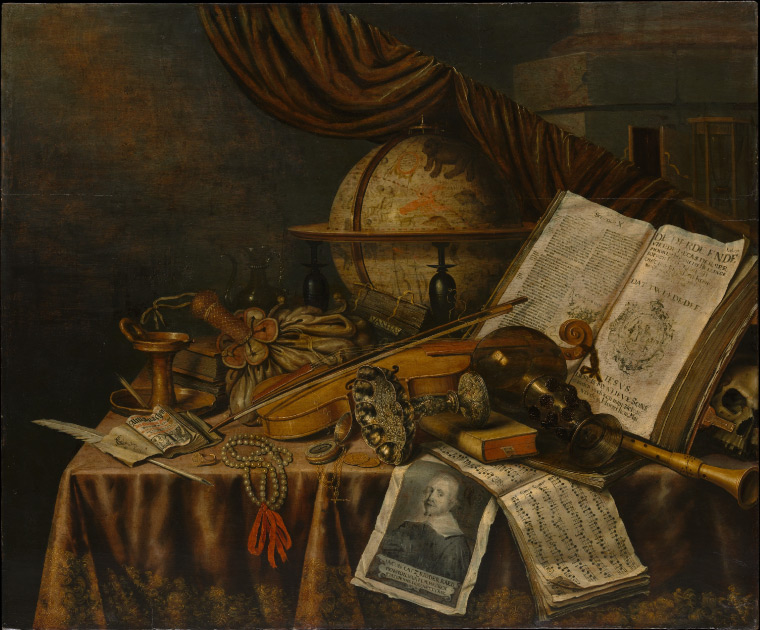
This time I was about to give up, after an endless wandering through the gates of Jungfrugatan; how could it be so difficult to find an address that I had visited so many times before? Finally, with a trembling hand, I opened the unnumbered gate that led up to the Count’s floor. The old elevator squeaked more than usual. Most reluctantly, the journey went upwards. I barely had time to knock. He opened the door. Turned his back on me, continued deep into the giant suite, all the way into the library. There was a bottle of grappa on the desk. He looked down at the floor with a grim expression. Turned and picked among the cigars in the drawer. I sensed the scent of a heavy men’s perfume that was no longer made, and whose ingredients probably couldn’t even be mustered. It smelled of musk, war and burnt-out churches.
“We have raised a generation of women who believe that everything is the fault of the patriarchy, and that they themselves are better, just because they are women.”
“Is it that bad,” I gasped?
“Probably worse. We are about to celebrate the centenary of women’s suffrage. A century. And yet they are not satisfied. Everything is still bad, and they still blame us. It’s beginning to look like resentment, or alternatively a nefarious political weapon to rule the world according to their own order. Choose, your reality.”
“A hundred years is a long time. I had forgotten it was so long ago.”
“Yeah, most people have. It coincides most closely with the Bohemian corporal’s ideology of doom, which is now also 100 years old. And there’s still talk of Nazis everywhere.”
“Yes, it’s getting a bit tiresome”, I said, taking out my pad. The count looked the other way and continued.
“It’s like a hysterical Napoleonic cult. You should know that it went badly for all those who were caught being Bonapartists after the defeat. It was punishable by death, if I remember correctly. But now it’s forgotten and buried, people eventually get tired of it.
Anyway, as for the toothless beer hall agitator, there’s not much more to add. I can understand why some people feel a tickle of the aesthetics and grandeur, even if it is forbidden fruit, so to speak, or maybe just because.
He wasted a third of the fatherland, and Köningsberg, oh Köningsberg, razed to the ground and plundered by the Bolsheviks. A sad end to our empire, which once dominated most of Europe. But that was before the time of idiots. Before the two wars, before folly and modernism.
If he wanted to squeeze the Hebrew bankers, why would he murder poor Polish and Ukrainian squatters? Many of them reclusive and conservative individuals, who valued family and honour. While globalists and predatory capitalists walked free. That toothbrush mustache was a real loser. Didn’t even follow his own disgusting ideology, but got paid from the same international bank accounts as everyone else.”
“Well, the war ended, he was defeated …” I was starting to sweat cold, this was a subject I didn’t like to slide into. But the Count was not to be stopped.
“And now people are shit-posting pictures of him on Facebook. And think they’re contrary and different. Calling everyone else normies, and considering themselves the know-it-all, even though they haven’t even begun to scratch the surface. Swastikas, leather coats and Luger guns. Expensive make-up and mirrored doors, but really the same communist pack that took power in Russia. They tricked and deceived the Prussian junkers, promised them war, glory and redemption, and led them straight down to hell. That’s what happens when the half-educated lower classes seize power and start reshaping the body of society. Shit in, gives shit out. Now it’s too late, Europe is doomed; we are having too few children, our women have turned against us, our creative power is gone. It’s over, my friend. It is over. And it has been for a long time.”
“Aren’t you being a little too pessimistic? Is it all just darkness?”
“Sometimes it’s useful to know that the battle is lost. It can bring relief to the soul to realize failure, and stare destiny in the eye. Now it’s no longer about the march and the conquest, but about the retreat and where we go next, and who goes on the second journey. For losing the battle does not mean that the universe is dissolved into its smallest components. No, life goes on uninterrupted.
They built dreary Soviet concrete barracks in Köningsberg, new people moved in from the East. The church was renovated, and is one of the few buildings that tells us that once upon a time there was another people living there, speaking another language, worshiping other gods, and having a different destiny. A people that no longer exists.”
He poured me a large glass of grappa.
In the same series of articles:
The West already died in the trenches of the First World War







